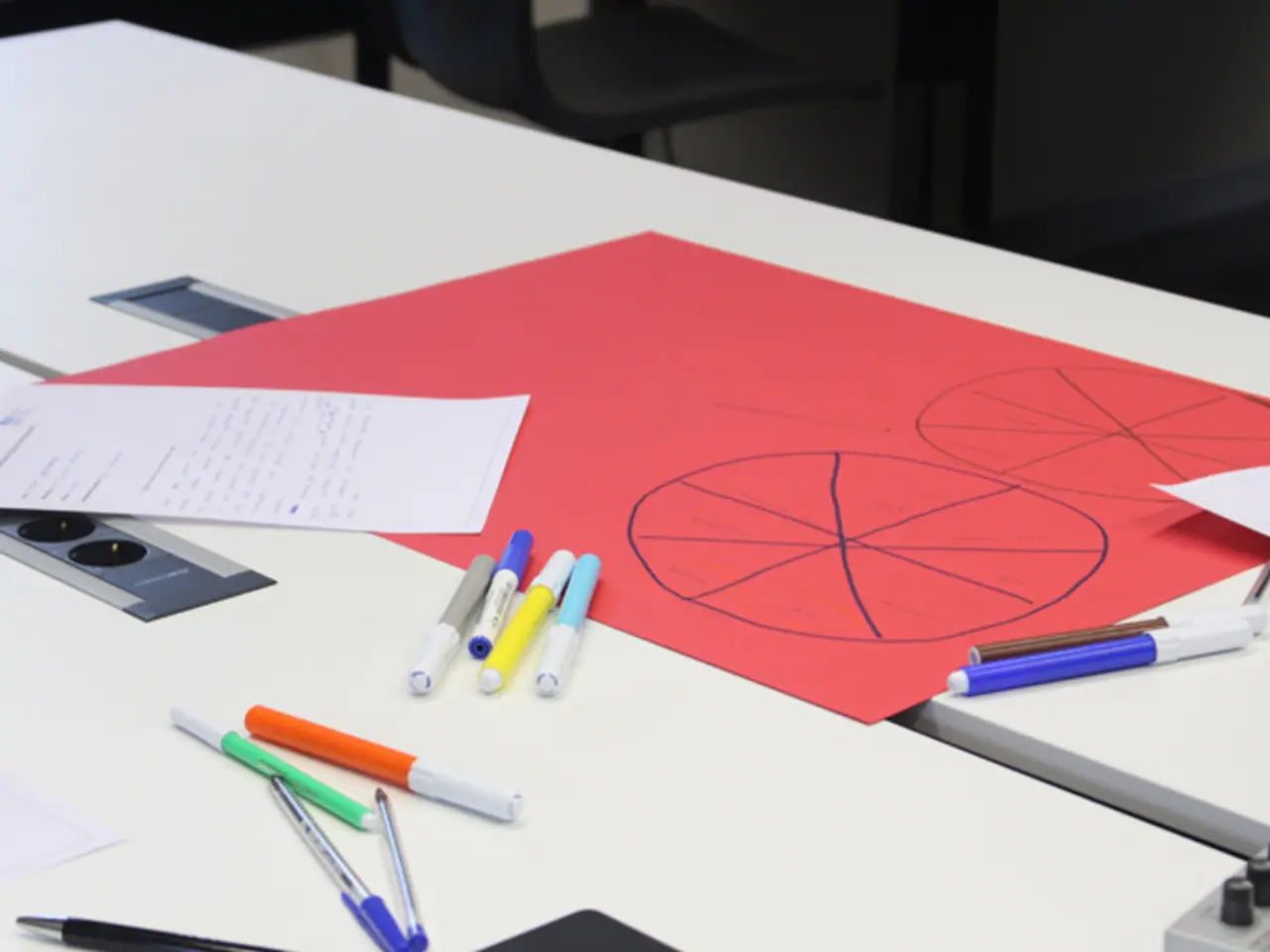Streamlining Mental Effort: The Rationale Behind Establishing Routines
In the pursuit of improved cognitive performance and mental well-being, establishing daily routines has emerged as a powerful tool, backed by neuroscience. By adopting routines, individuals can unlock a myriad of benefits that enhance their cognitive abilities and overall mental health.
Routines serve as a foundation for stability, reducing uncertainty and providing a sense of safety. They lower cortisol levels, promoting relaxation, preparedness, and emotional resilience. This stability frees the brain to focus on what truly matters, reducing the mental load of everyday decisions.
One of the key aspects of designing brain-friendly routines is identifying key anchors that support mental clarity, energy, and performance. Habits stick better when attached to a trigger, reducing the need for willpower. Small routines, when compounded over time, build motivation through a positive feedback loop.
Routines offload cognitive demand, minimizing decision fatigue, and creating space for higher-order thinking. Decision fatigue, the decline in the quality of decisions made after a long session of decision-making, can be significantly reduced by incorporating routines into daily life.
Structured days not only reduce emotional reactivity but also increase proactive behaviour. Once a behaviour becomes a habit, it requires far less energy and attention, freeing up the brain's executive functions. Guarding routines with boundaries helps them become non-negotiable and reinforces their importance.
Adopting daily routines also has a profound impact on brain chemistry and circadian rhythms. Morning sunlight exposure and hydration trigger a cortisol spike, promoting wakefulness and alertness. Consuming a protein-rich breakfast supports glucose balance and neurotransmitter acetylcholine production, enhancing focus and memory. Evening routines involving magnesium and journaling prepare the brain for melatonin release, promoting relaxation and quality sleep, which is crucial for memory consolidation and brain detoxification.
Regular exercise, even moderate activity multiple times a week, is another essential component of a brain-friendly routine. Physical activity slows cognitive decline by improving brain plasticity and vascular health. It stimulates dopamine and endorphin release, boosting mood and executive functions. Sustained exercise habits can delay the onset of dementia by maintaining brain health and cognitive function over time.
Incorporating brain-challenging activities, such as puzzles or learning new skills, as part of a weekly routine fosters brain plasticity and IQ improvements by stimulating neural networks responsible for memory, reasoning, and problem-solving.
Certain brain supplements, such as L-theanine + Caffeine, Citicoline, Rhodiola Rosea, and Bacopa Monnieri, can support routine-building efforts by promoting clarity, motivation, and follow-through. Establishing a consistent sleep-wake cycle is also crucial, as it improves sleep quality, essential for memory consolidation, mood regulation, and cognitive clarity.
In summary, daily routines optimize brain function by balancing neurochemical activity, sustaining physical activity, reinforcing healthy habits, and providing regular cognitive challenge. This holistic approach, supported by neuroscience, helps maintain sharper cognition and better mental health over time.
Routines, aligned with mental health and well-being, extend their influence over other aspects such as health-and-wellness, fitness-and-exercise, education-and-self-development, and personal-growth. By serving as a foundation for stability, they lower cortisol levels and promote relaxation, preparedness, and emotional resilience, thereby freeing the brain to focus on learning and high-order thinking.
Establishing routines outside the realm of mental health can also yield benefits; for example, incorporating regular exercise into daily life significantly improves brain plasticity and vascular health, boosting mood and deterring cognitive decline, which supports overall health and well-being.
Investing in brain supplements, such as L-theanine + Caffeine, Citicoline, Rhodiola Rosea, and Bacopa Monnieri, can further support routine-building efforts, promoting clarity, motivation, and follow-through that are essential ingredients for personal growth and learning.
Pursuing brain-challenging activities, like puzzles or learning new skills, as part of a weekly routine not only fosters brain plasticity but also helps nurture IQ improvements and mental sharpness, making these activities invaluable resources in the quest for cognitive performance and mental well-being.







